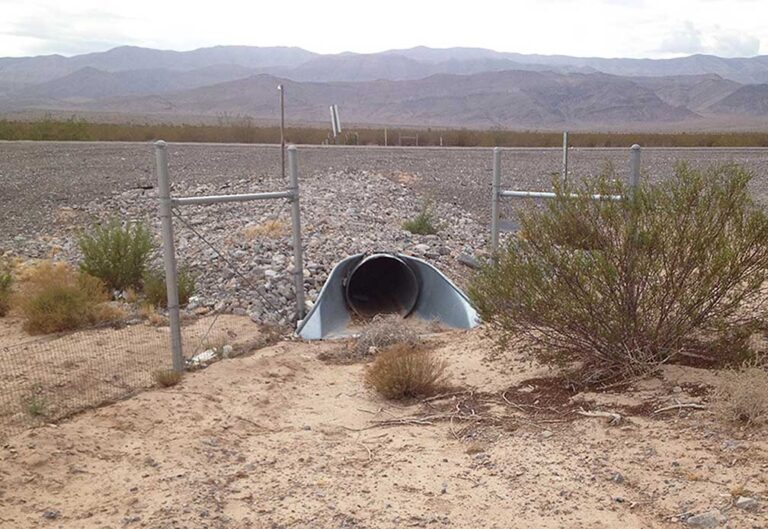RENO, Nevada — A pool-funded study led by the Nevada Department of Transportation (NDOT) that aims to stop as many vehicles as possible from striking animals recently received a Federal Highway Administration (FHWA) award.
The Wildlife Vehicle Collision Reduction and Habitat Connectivity transportation study, formed with the goal of reducing the risk of wildlife-vehicle collisions and improving habitat connectivity, has received an FHWA 2024 Environmental Excellence Award, which recognizes outstanding federally-funded transportation projects and programs that go above and beyond to achieve nation-leading environmental excellence.
Completed in 2022, the NDOT-led study presents an authoritative review of the most effective measures to reduce conflict between wildlife and roads, improve motorist safety and offer safer crossings for wildlife, according to a news release.
The study produced 20 reports, including manuals for how to:
- Protect motorists from wildlife-vehicle collisions
- Restore wildlife connectivity across transportation corridors
- Prioritize locations and actions to minimize wildlife-vehicle conflict
- Institutionalize and incorporate wildlife concerns into transportation processes
“This effort has been monumental and unprecedented for this field of study,” said Nova Simpson, NDOT’s wildlife crossings program manager. “We are excited and happy for all of the partners, research teams and individuals that have been involved.”
Reducing animal-vehicle collisions is a focus for NDOT, with the department having installed 24 large animal over- and underpasses and modified an additional 13 structures to improve large animal movement. NDOT has also installed 42 tortoise crossings and erected more than 500 miles of wildlife fencing in Nevada.
Each year, more than 500 animal-vehicle crashes are reported in the state, but it’s estimated that only 10 percent of such crashes are reported.
Nationally, as many as two million collisions occur with large mammals in the U.S. leading to approximately 200 human deaths every year and $10 billion in costs to taxpayers, according to NDOT officials.
“It’s against this backdrop that study results have been presented to national and state audiences, used by states to apply for funding from the Wildlife Crossings Pilot Program and utilized by nonprofits and legislators to support state wildlife mitigation legislation,” the news release notes.
To view the study and its findings, click here.
Born in Pine Bluff, Arkansas, and raised in East Texas, John Worthen returned to his home state to attend college in 1998 and decided to make his life in The Natural State. Worthen is a 20-year veteran of the journalism industry and has covered just about every topic there is. He has a passion for writing and telling stories. He has worked as a beat reporter and bureau chief for a statewide newspaper and as managing editor of a regional newspaper in Arkansas. Additionally, Worthen has been a prolific freelance journalist for two decades, and has been published in several travel magazines and on travel websites.








